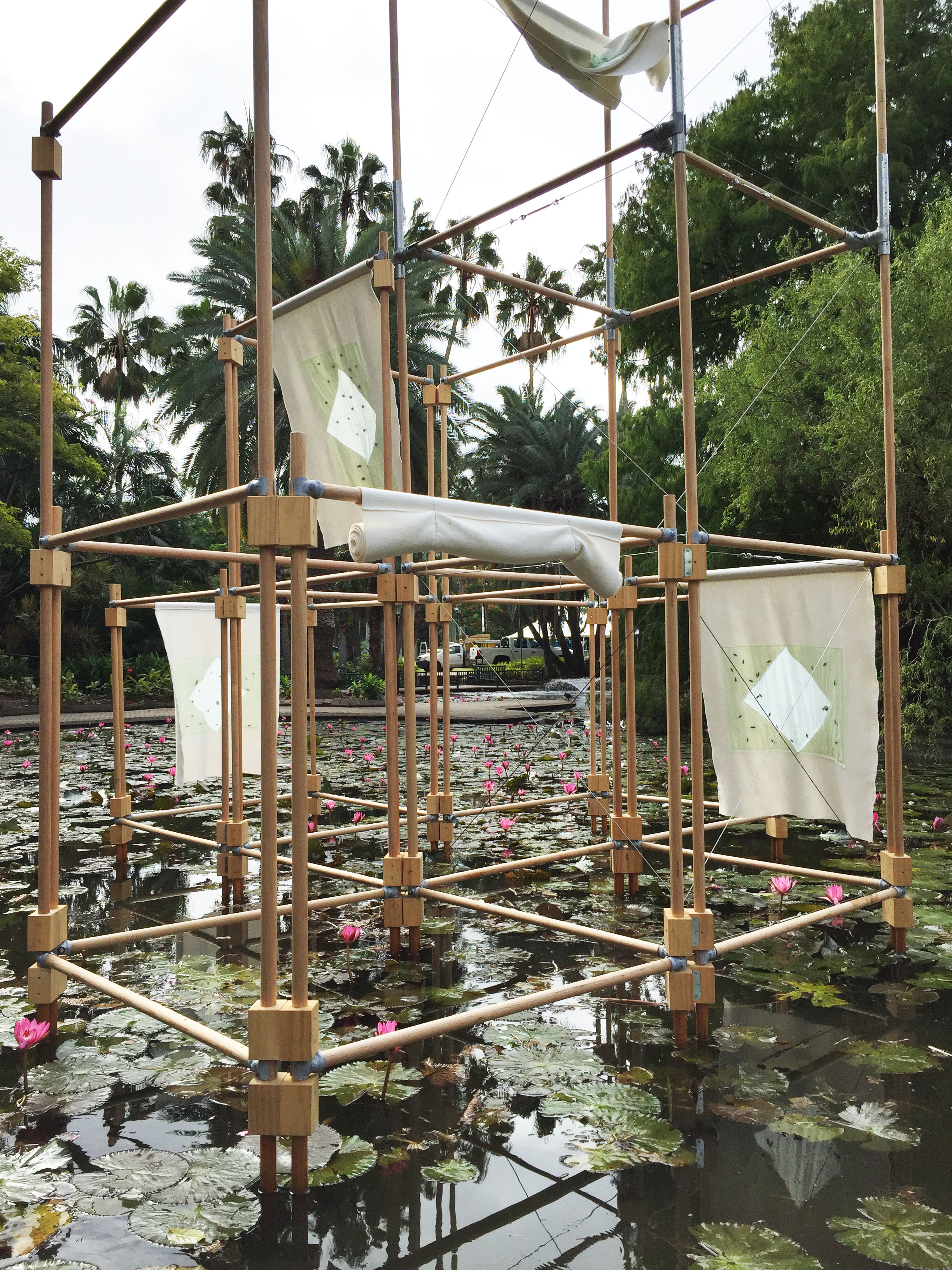Plant Nation
Biodegradable plastic, plant seeds, felt, timber dowel, galvanised fitttings.
Brisbane City Botanic Gardens, commissioned by Ineke Dane at UAP.
Flags mark territory. The border, the nation state, land, real estate.
Plants consider territory in a fundamentally different way. Plants claim land with their bodies, their occupations are not reliant on fences, on guards, on checkpoints. The borders of the plant nation are in constant motion.
The plant nation is a commonwealth, a federation, an empire made of many nations, yet unlike our human nations its various nationalities, its species-beings, do not require exclusive control of land and territory. Rather the nations overlap, and are interwoven.






The plant nation is a self governing collective. Its laws too are inseparable from the bodies of its citizens.
The plant body then becomes the only marker of territory. The citizen is the border. The nation is composed not of territory but of inhabitation.
The plant nation has alway existed. We have built our nations upon its territory. It continues to exist. It outlasts and outlive human nations, human empires. The plant nation will outlive us as well.
Like a rhizome, a sleeping tuber, the plant nation continues underground. It is a quiet nation, it makes no threats. Its diplomacy is gentle but ruthless. Slowly but steadily creeping up through the cracks.
The flag is a human marker of territory, of nationhood, of the authority of a particular state and its specific set of laws. What would the flag of the plant nation signify, how would it operate?
The work Plant Nation plays with ideas and artefacts of nationhood. It builds a future-ruin on which to hoist the flags of the Plant Nation. Unlike human flags the flag of the plant nation is fragile and impermanent, made of biodegradable plastic. Yet it contains within its fabric the seeds of its expansion. The flag is the nation is the citizens. All will rot and grow together.
Curiously the flags can only have been made by human hands, but who are these people who work for the glory of a non-human empire? Who serve a nation of others? It is a strange notion, yet considering our utter dependence on the plant world for our survival, perhaps not so strange after all.
Through taking seriously the playful idea of a plant nation state, the work invites us to reconsider our relationship not only between humans and plants, but also between humans and the forms in which we organise and regulate our collective identities.
Botanica 2019, BAD festival
